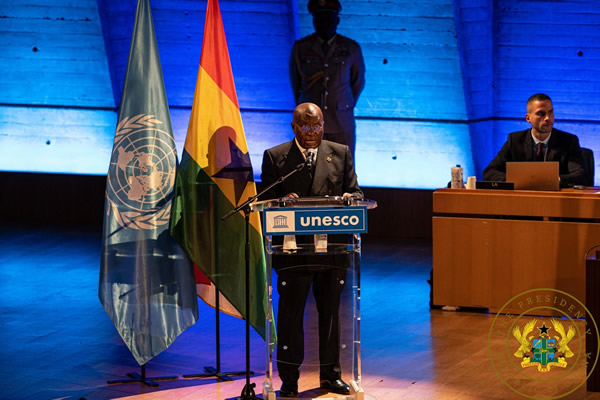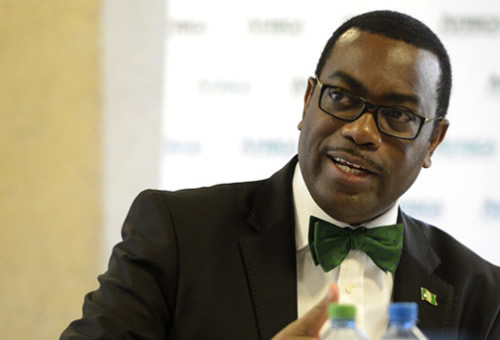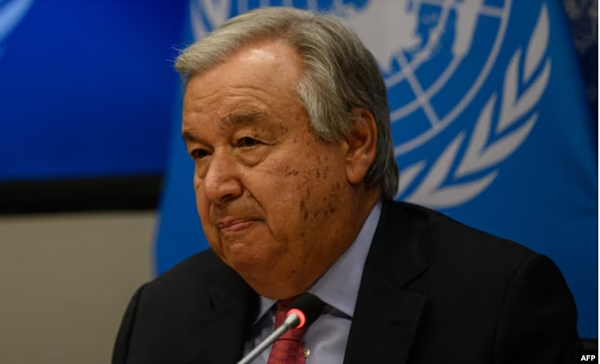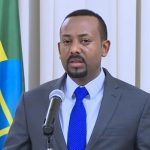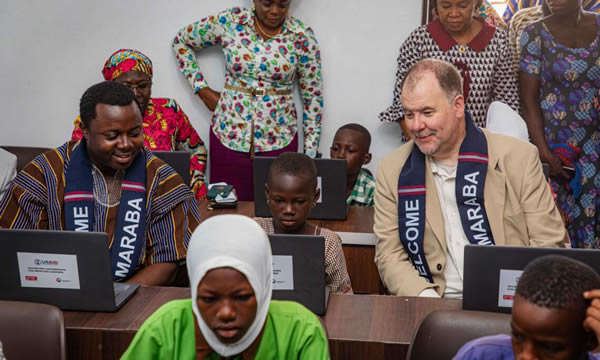
The United States government through the U.S. Agency for International Development (USAID) has commissioned an Information and Communications Technology (ICT) center in the Nanton District of the Northern Region and provided teaching and learning materials to improve education quality in the north.
The ICT center is the first of its kind in the district and will serve over 1,700 students from six schools. The Haira Excellence Academy volunteered one of its unused rooms to accommodate the ICT Center, and private I.T. company, IPMC Ghana donated 21 laptop computers and accessories, and audiovisual literacy instruction materials to the center.
The teaching and learning materials include English teacher guides, read-aloud compendiums, supplementary readers, student textbooks and workbooks, flash cards, and alphabet charts and cards. USAID provided $70,000 (over one million Ghana Cedis) to print and distribute these materials for 154 low-fee private schools, this year, in 13 districts in the Northern, North East, Upper East and Upper West Regions. These are the first batch of recipients with more expected in the coming months.
“In the past year, we have collaborated with the private sector, government, and the leadership of these schools to improve education quality, increase private sector investment, and ensure teachers receive regular professional development, training, and mentorship. Today’s commissioning and donation are an outcome of these partnerships,” said U.S. Embassy Deputy Chief of Mission, Rolf Olson during the event.
The ICT center and educational material donation form part of the USAID Advancing Partnerships for Improved Learning (APIL) Activity. APIL supports more than 200 low-fee private schools to provide quality education for children in underserved communities in northern Ghana.
“We invest in Ghana’s education sector because we believe in its power to open doors. Quality education enhances citizens’ prospects for decent work, income generation, and well-being. For societies, it promotes sustainable economic development, alleviates poverty, stimulates innovation, enhances institutional capacity, and cultivates social unity,” Olson added.
The United States is Ghana’s largest bilateral development partner. In 2023, development support through the U.S. Agency for International Development (USAID) totaled over $140 million in education, health, economic growth, agriculture, and more.
Source: gh.usembassy.gov



